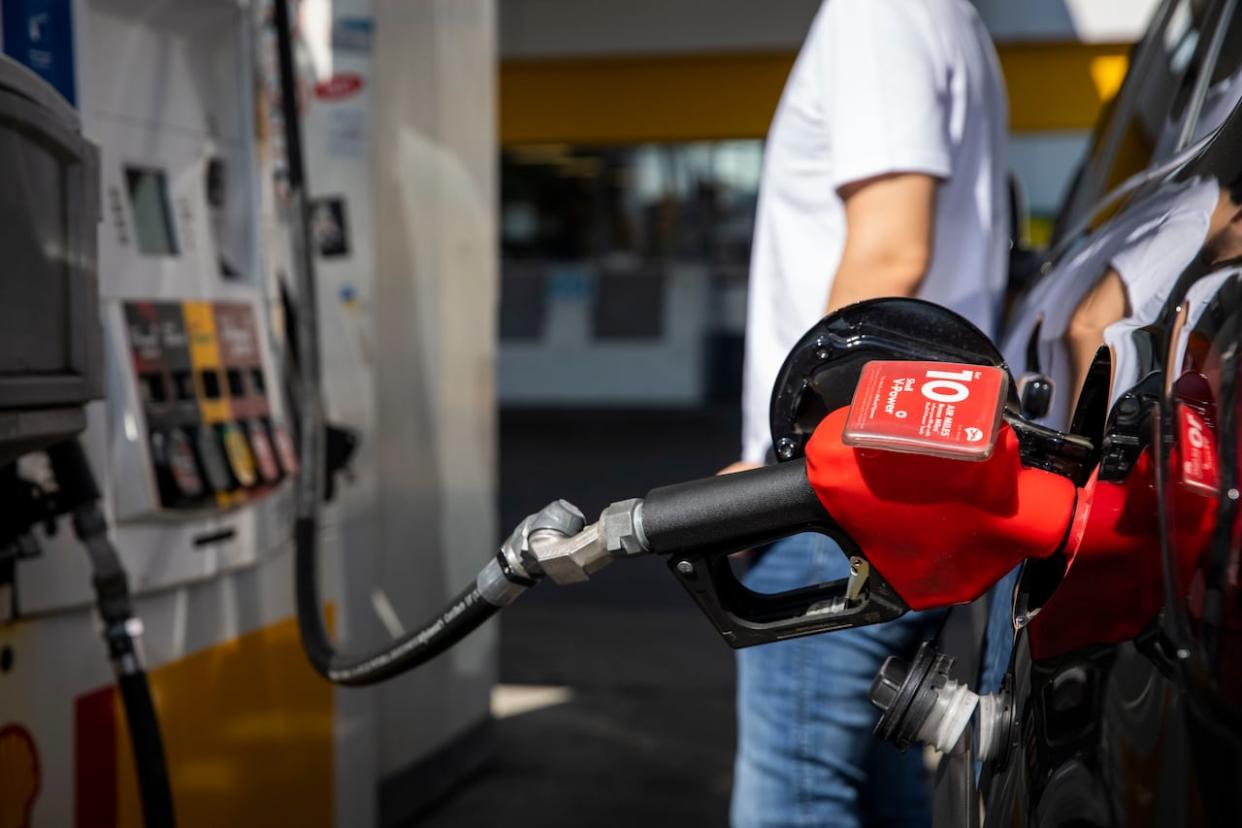Dropping gas prices has pain at the pump hurting a bit less

The pain at the pump is starting to hurt a bit less with gas prices dropping around British Columbia.
In Vancouver, which commonly has some of the highest gasoline prices in the country, a litre of regular was going for an average of about $1.76 on Monday.
That's down over 50 cents from the all-time high of $2.30 or more six weeks ago, and down 20 cents per litre compared to one year ago.
The lead petroleum analyst with price-tracking app Gas Buddy says the downward trend is likely to continue for a while.
"The prognosis is good that gas prices should continue declining over the next couple of weeks and by the end of the year there could be another 20 cents lower than where they are today," said Patrick DeHaan.
Falling prices are due to multiple factors, according to DeHaan, including weaker demand from people driving less in the cooler months and lower production costs for winter gasoline, which is a less expensive blend than summer gas.
"Again, a lot of this decline is seasonal, but there has been some global weakness in consumption observed and that's also pushing the price of oil down to about $76 a barrel this morning," he said. "So, oil has declined three straight weeks, and that's opening up the door for even more declines when it comes to gasoline."
Even though $1.76/litre may seem like a bargain in Vancouver, the average price in Canada is much lower — just over $1.47 per litre according to the Canadian Automobile Association.
Metro Vancouver has the highest rate of gas taxes in the country.
DeHaan says there are some unknowns that could change the gasoline price outlook, like Russia's war in Ukraine and supply-chain issues that remain from the COVID-19 pandemic.
But overall, he sees the outlook for lower prices lasting into the new year.
"All of this is likely to happen in winter. By the time we get to February and March, then we will start to see prices rallying and $2 a litre could be a possibility," he said.
Transportation accounts for 38 per cent of greenhouse gas emissions in B.C., according to the Canada Energy Regulator.


